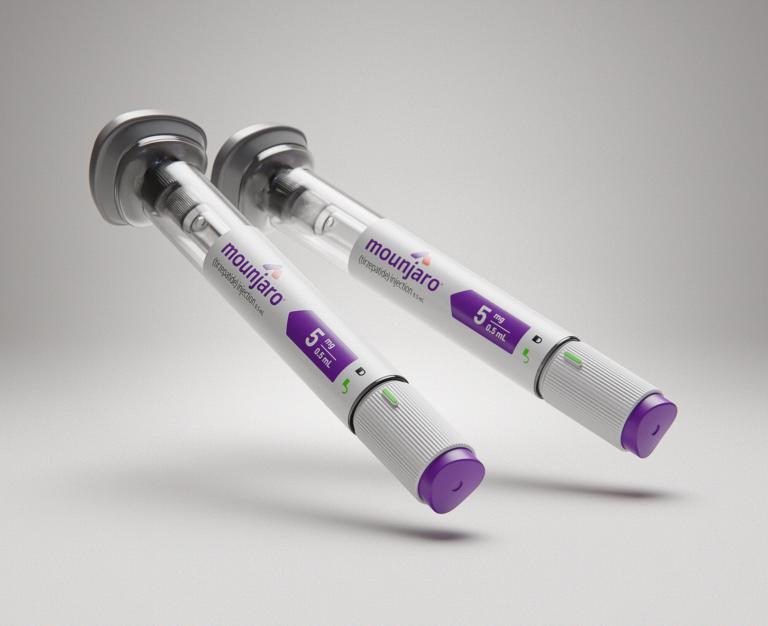
When it comes to weight loss drugs, there is growing excitement surrounding a new class of medications known as GLP-1 agonists. These FDA-approved drugs, including Novo Nordisk’s Ozempic and Wegovy (semaglutide) and Eli Lilly’s Mounjaro (tirzepatide), were initially approved as diabetes drugs to treat help control high blood sugar in type 2 diabetes, but have shown significant effectiveness in weight loss as well. However, one major hurdle for many individuals seeking these medications is the lack of coverage by Medicare. In this article, we will explore the current status of Medicare coverage for obesity treatments, discuss the potential cost implications if Medicare were to cover anti-obesity drugs like Wegovy and Mounjaro, and highlight the role of the Inflation Reduction Act in addressing these concerns.
Medicare coverage of obesity treatments
Medicare is the federal health insurance program for Americans primarily for people 65 years of age and older. As of now, Medicare coverage of obesity services and treatments primarily includes obesity screening, behavioral counseling, and bariatric surgery. However, drugs prescribed for weight loss, such as GLP-1 agonists, are not covered under Medicare Part D. The 2003 law that established the Medicare Part D prescription drug benefit, explicitly prohibits coverage for drugs used for weight loss. This exclusion extends to other types of drugs as well, including those used for cosmetic purposes, hair growth, fertility, and sexual or erectile dysfunction.
The effectiveness of GLP-1 agonists for weight loss
GLP-1 agonists have shown remarkable effectiveness in promoting weight loss. Clinical trials have demonstrated substantial weight reductions in individuals who use these medications. For example, drug manufacturer Novo Nordisk’s brand name drugs Ozempic and Wegovy, which contain the active ingredient semaglutide, have been shown to lead to an average weight loss of about 15% of body weight. Eli Lilly’s Mounjaro (tirzepatide) has also demonstrated significant weight loss results, with clinical trials showing reductions ranging from 21% to 22.5% at the highest dose.
The weight loss achieved with GLP-1 agonists is comparable to that seen with bariatric surgery, making these medications an appealing option for individuals who may not qualify for or prefer to avoid surgical interventions. The ability of GLP-1 agonists to target multiple factors involved in weight regulation, such as appetite control and glucose metabolism, contributes to their effectiveness in promoting weight loss.
The cost implications of Medicare coverage for anti-obesity medications
While GLP-1 agonists have shown impressive efficacy in weight loss, their cost can be a significant barrier for many individuals. Without Medicare coverage, the out-of-pocket expenses for these medications can be prohibitively high. For example, the list price of Mounjaro is approximately $974 for a one-month supply. However, most people do not pay this price due to insurance coverage or patient assistance programs.
If Medicare were to cover anti-obesity drugs like Wegovy and Mounjaro, the cost implications would be substantial. The number of individuals eligible for these medications under Medicare is considerable, given the high prevalence of obesity and the associated health risks. The increased demand for these drugs could lead to higher overall healthcare costs, potentially impacting Medicare’s budget and premiums for beneficiaries.
The role of the Inflation Reduction Act
To address the rising costs of prescription drugs, including those used for weight loss, the Inflation Reduction Act was introduced in the 118th Congress in July 2023. This legislation aims to empower the Secretary of Health and Human Services to negotiate drug prices on behalf of Medicare, potentially leading to lower costs for medications like Wegovy and Mounjaro. If passed, this act could provide Medicare beneficiaries with greater access to anti-obesity drugs and alleviate some of the financial burdens associated with weight loss treatments.
Conclusion
GLP-1 agonists, such as Wegovy and Mounjaro, have demonstrated significant effectiveness in promoting weight loss. However, the lack of Medicare coverage for these medications poses a challenge for individuals seeking treatment. The potential cost implications of Medicare insurance plans for anti-obesity drugs underscore the need for policy interventions, such as the Inflation Reduction Act, to address affordability concerns. By expanding Medicare coverage to include weight loss medications, we can improve access to effective treatments and support individuals in their weight management journey.
Sources
- Is Mounjaro covered by insurance or Medicare?
- Does Medicare Cover Ozempic and Other Weight Loss drugs?
- What Could New Anti-Obesity Drugs Mean for Medicare? | KFF
Medical Disclaimer
NowPatient has taken all reasonable steps to ensure that all material is factually accurate, complete, and current. However, the knowledge and experience of a qualified healthcare professional should always be sought after instead of using the information on this page. Before taking any drug, you should always speak to your doctor or another qualified healthcare provider.
The information provided here about medications is subject to change and is not meant to include all uses, precautions, warnings, directions, drug interactions, allergic reactions, or negative effects. The absence of warnings or other information for a particular medication does not imply that the medication or medication combination is appropriate for all patients or for all possible purposes.










